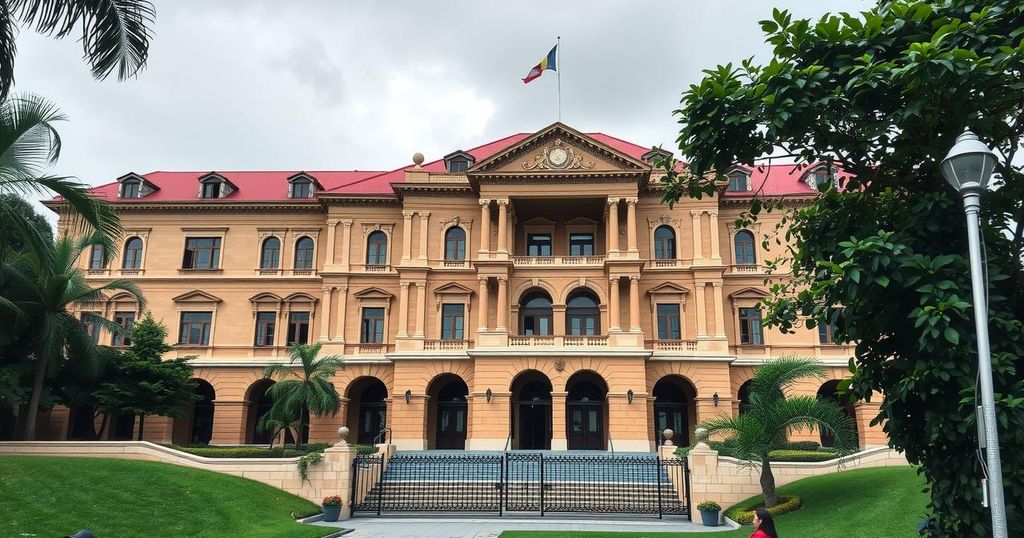Colombia’s Congress has increased security due to planned protests by unions and supporters of President Gustavo Petro against the shelving of a crucial labor reform. Local authorities have issued warnings to government workers about participation, intensifying tensions with labor groups. The protests also aim to garner support for additional health and pension reforms.
In preparation for upcoming labor protests in Colombia, Congress has implemented heightened security protocols following a senate commission’s controversial decision to shelve a significant labor reform proposed by President Gustavo Petro. The president invited labor unions, farmers’ organizations, and his political allies to participate in demonstrations coinciding with the Congressional vote on the reform.
Senate President Efrain Cepeda, known for his criticism of President Petro, announced limitations on access to the capitol building on Tuesday, permitting entry solely for congressmen, government officials, and accredited press. Senator Nadia Blel from the Conservative Party remarked that the senators intending to vote against the labor reform have faced attacks, harassment, and threats from the National Government, expressing concern for their families’ safety.
Local authorities across Colombia’s major cities have declined to permit government workers to join the protests, causing heightened tension with unions. For example, Bogota Mayor Carlos Galan warned that teachers who do not report to work on Tuesday may face withheld wages, a statement met with opposition from the teachers’ union, FECODE, which pointed out that teachers are compensated by the National Government.
Labor Minister Antonio Sanguino emphasized that his department will oversee any actions by employers that might infringe upon workers’ rights to protest. He noted that the labor relationship must not be utilized to limit this right, reinforcing that the Constitutional Court has stated that workers’ personal dignity, beliefs, and freedom of association must be respected.
The upcoming protests are being coordinated by prominent labor unions and indigenous groups, who are also advocating for congressional approval of essential health and pension reforms in light of the current political climate.
In summary, heightened security measures have been adopted in Colombia’s Congress as protests are organized by various groups in response to a pivotal labor reform vote. With local authorities resisting union participation and labor officials emphasizing workers’ rights, tensions are rising amidst competing political interests. The outcome remains critical for the future of labor rights and social reforms in Colombia.
Original Source: colombiareports.com






